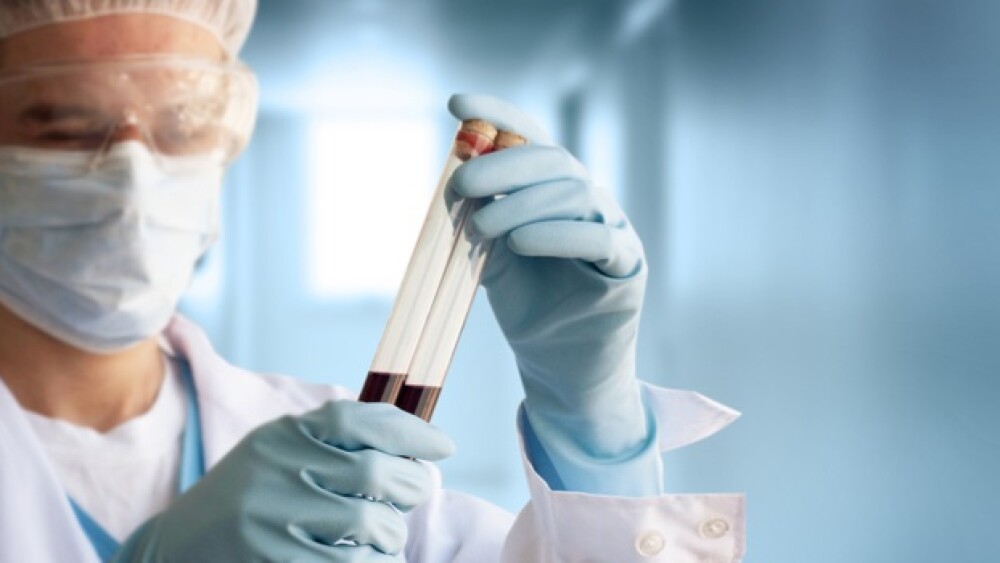Some diagnostics testing for infectious diseases can be quite invasive and uncomfortable for a patient. Now though, a new form of test is available that can mitigate the need for those invasive tests.
Some diagnostics testing for infectious diseases can be quite invasive and uncomfortable for a patient. Now though, a new form of test is available that can mitigate the need for those invasive tests.
Redwood City, Calif.-based medtech company Karius is developing a technology that can diagnose those kinds of infectious diseases through a simple blood test. Before the words blood and test trigger painful and wary memories of companies like Theranos, Karius has published the results of its most recent study in a peer-reviewed scientific journal.
While there are a number of antifungal therapies on the market, Karius said invasive fungal infections remain a major cause of morbidity and mortality. That’s especially true when it comes to patients who have a compromised immune system. Karius said tissue biopsies can provide microbiologic diagnoses for “life-threatening deep-seated infections” but also noted that such procedures may not be the best option in some cases. Additionally, Karius said the invasive procedures can lead to high morbidity and add to healthcare costs. That’s where Karius’ new testing technology comes into play.
The Karius study showed that the non-invasive blood test, called the Karius Test, was able to detect both Aspergillus and non-Aspergillus molds in patients with proven IFI, who were previously diagnosed by invasive samplings of infected tissue. The company published the results of the test in Diagnostic Microbiology and Infectious Disease. According to the company’s website, the Karius Test can identify more than 750 bacteria, more than 300 molds and fungi, more than 100 DNA viruses and more. Karius said its test can detect more than 1,000 pathogens “from a single non-invasive blood draw with next day results.”
David Hong, head of medical affairs and clinical development at Karius, said there is a significant need for a non-invasive blood test that can provide the correct diagnosis without leading to additional medical problems. Hong noted that liquid biopsies have proven to be effective in oncological diagnostics.
“We are helping infectious disease doctors and microbiologists identify some of their most challenging infections, particularly where current diagnostic methods are either limited, invasive or time-consuming,” Hong said in June, ahead of the ASM Microbe 2018 Conference in Atlanta. “Next-generation sequencing of cell-free plasma can rapidly and non-invasively identify fungal pathogens in immunocompromised pediatric patients, allowing for earlier, targeted treatment.”
This week Hong said the technology is “poised to have wider applications, particularly in infectious disease.” The test is currently available to hospitals across the United States.
The Karius Test is a novel next-generation sequencing assay that was used to detect pathogen-derived cell-free DNA in patients with IFI. The study published in Diagnostic Microbiology and Infectious Disease included nine adult patients with diagnosed IFI, as confirmed by standard tissue biopsies. Karius said that the patients had deep fungal infections in their lungs, heart, brain, sternum, small bowel or peri-pancreatic lymph nodes. Plasma samples were collected and sent to the Karius laboratory. After running the samples through its Karius Test system, the company said the results discovered from its proprietary technology were in agreement with those generated by standard, more invasive diagnostic methods. Karius said its test “accurately identified” the pathogens at the species level. In one patient, Aspergillus lentulus was identified while conventional culture diagnosis found Aspergillus fumigatus species complex, the company said. Symptoms of invasive Aspergillus lentulus include fever, coughing up blood, a shortness of breath, bleeding from the lungs, chest and/or joint and more. Karius noted that this was a key finding because Aspergillus lentulus is resistant to first-line antifungal medications. Identifying the right pathogen can lead to more effective antifungal therapy, Karius said.





